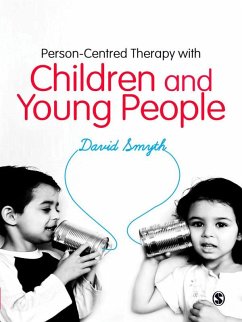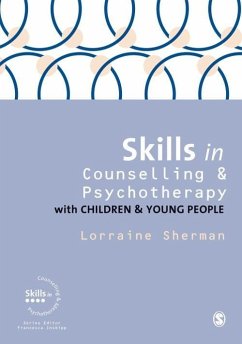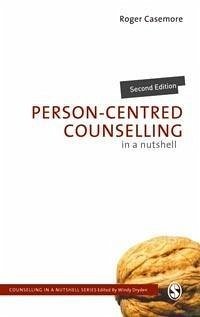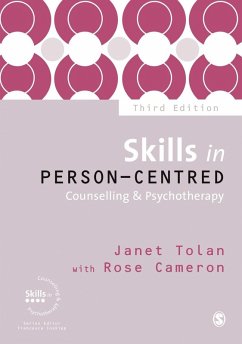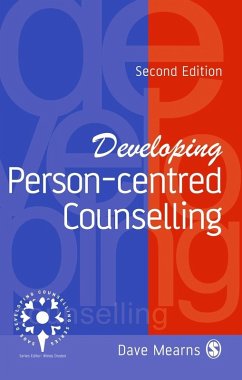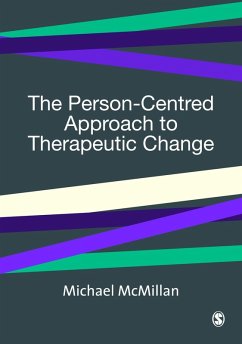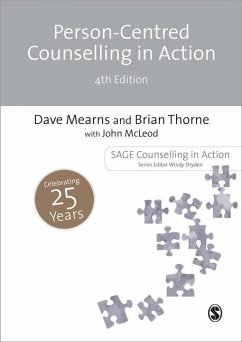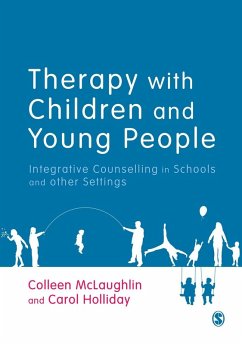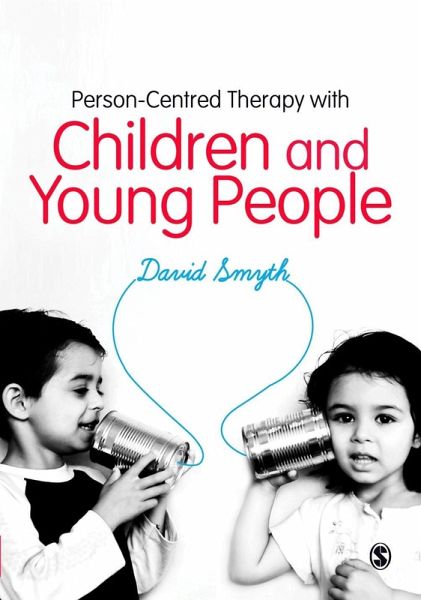
Person-Centred Therapy with Children and Young People (eBook, PDF)
Versandkostenfrei!
Sofort per Download lieferbar
33,95 €
inkl. MwSt.
Weitere Ausgaben:

PAYBACK Punkte
17 °P sammeln!
This engaging new book presents a 'child-centred' model of therapy that is thoroughly person-centred in its values. Establishing the roots of child-centred therapy in both child development theories and the Rogerian model, David Smyth demonstrates that counselling the person-centred way is exceptionally relevant to young people.The book further develops child-centred therapy theory and practice, applying the model to real-life practice with children and young people, whether in play, school, organisations or with special needs groups. It also explores the complex professional issues so critica...
This engaging new book presents a 'child-centred' model of therapy that is thoroughly person-centred in its values. Establishing the roots of child-centred therapy in both child development theories and the Rogerian model, David Smyth demonstrates that counselling the person-centred way is exceptionally relevant to young people.
The book further develops child-centred therapy theory and practice, applying the model to real-life practice with children and young people, whether in play, school, organisations or with special needs groups. It also explores the complex professional issues so critical with this age group, including challenging boundaries, establishing an effective relationship with parents and other primary carers, legal and ethical considerations, and multi-professional practice.
The author's warm, accessible style conveys his passionate conviction that the person-centred approach can provide a strong foundation for child therapy practice. His book introduces humanistic counselling and psychotherapy trainees - as well as adult-trained therapists - to the particular requirements of working with children and young people, and also illustrates the value of using a 'child-centred' approach for those who might already be working with children in mental health settings. Equally, this volume can be used for professional development in many disciplines including adult trained therapists who want to extend their knowledge of people prior to reaching adulthood.
The book further develops child-centred therapy theory and practice, applying the model to real-life practice with children and young people, whether in play, school, organisations or with special needs groups. It also explores the complex professional issues so critical with this age group, including challenging boundaries, establishing an effective relationship with parents and other primary carers, legal and ethical considerations, and multi-professional practice.
The author's warm, accessible style conveys his passionate conviction that the person-centred approach can provide a strong foundation for child therapy practice. His book introduces humanistic counselling and psychotherapy trainees - as well as adult-trained therapists - to the particular requirements of working with children and young people, and also illustrates the value of using a 'child-centred' approach for those who might already be working with children in mental health settings. Equally, this volume can be used for professional development in many disciplines including adult trained therapists who want to extend their knowledge of people prior to reaching adulthood.
Dieser Download kann aus rechtlichen Gründen nur mit Rechnungsadresse in A, D ausgeliefert werden.




